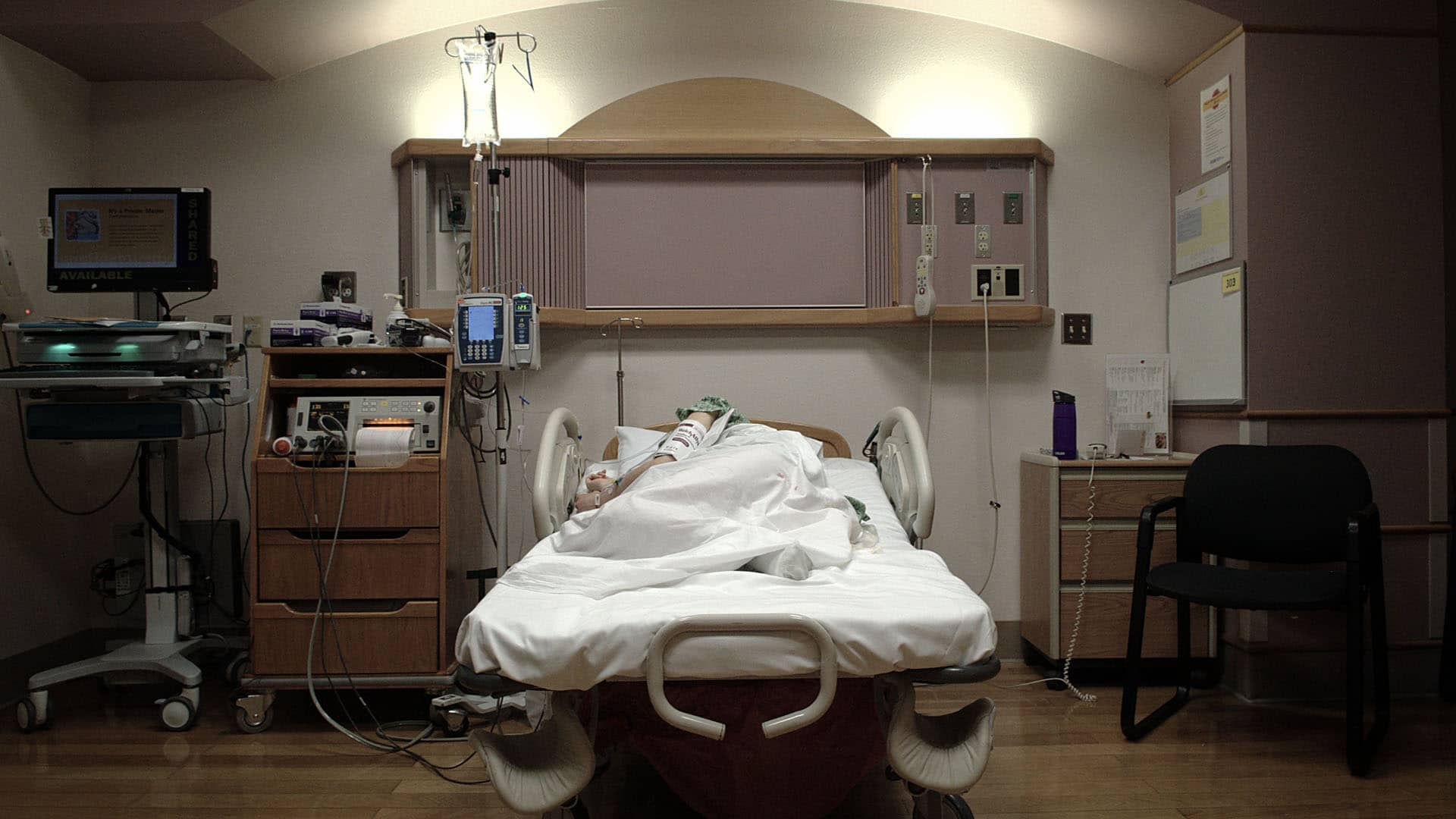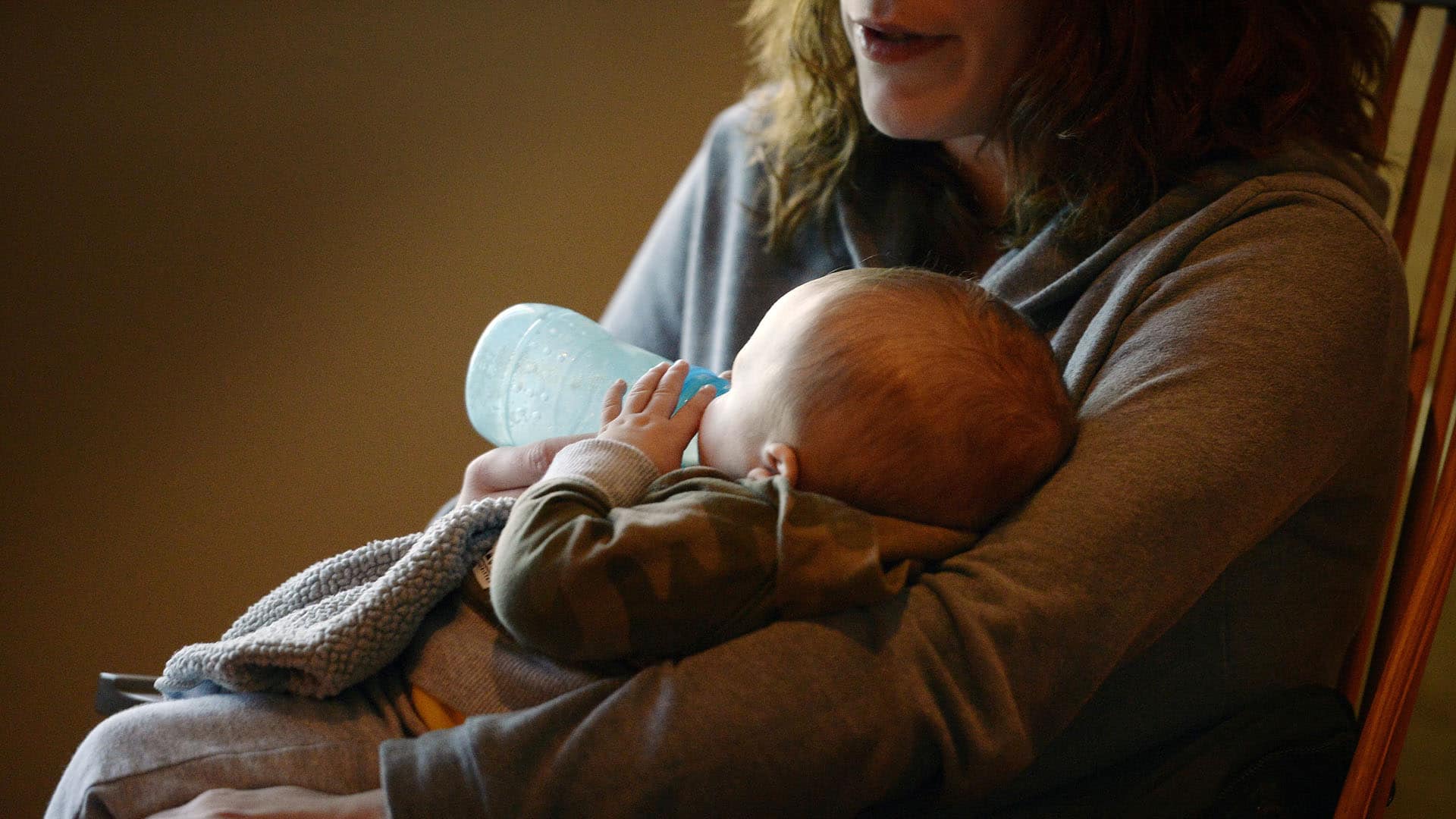As Virus Upends Birth Plans, Women Mull Impacts and Alternatives
UPDATE: A day after this story was published, the administration of New York Gov. Andrew M. Cuomo released an executive order requiring hospitals in New York to “permit the attendance of one support person who does not have a fever at the time of labor/delivery to be present as a support person for a patient who is giving birth.”
When New York City resident Joanna Davis learned that some local hospitals would no longer allow visitors in the delivery room, she was devastated. Davis is expecting her first baby in early June, and she is now mentally preparing for a labor and delivery that will not include her husband by her side. While Davis’ hospital still allows one visitor for women in labor, she assumes this will change soon as hospitals enact new restrictions designed to slow the surge of Covid-19 cases in a city that has become a global epicenter of the disease.
“This is our first baby. It just breaks my heart to know that my husband, Udi, won’t be there to witness the birth of his daughter and to hold her right after she’s born,” Davis says.
 |
Got questions or thoughts to share on Covid-19? |
On March 18, the New York State Department of Health advised hospitals to immediately ban nearly all visitors. Within days, the NewYork-Presbyterian Hospital system posted new policies stipulating that “no visitors including birthing partners and support persons are permitted for obstetric patients.” The obstetrics practice at Weill Cornell Medicine, affiliated with NewYork-Presbyterian, explained the no-visitors policy in an email to patients: “Even a basic bodily function (such as a cough or a sneeze) by an infected birthing partner could pose a potential threat to maternal-fetal welfare across our department.”
Hospitals in New York City already face skyrocketing numbers of sick patients and dwindling supplies of protective gear. Even before NewYork-Presbyterian cut off all visitors, hospitals there and in cities around the country were dramatically limiting visitors for all kinds of patients. So far, birthing women in most places can still have at least one person in the room. But even if they won’t have to be totally alone, these women may now be forced to choose between their doula — a trained professional who provides childbirth support — and their partner, mother, or other companion whose support they’d previously counted on.
It’s too early to know precisely how these new policies might affect the health of mother and child. But past research paints a troubling picture. Studies have found that deliveries are shorter and easier when women have someone there during labor to encourage them, help them manage pain, and speak up on their behalf. Without this support, women are more likely to end up having Caesarean sections and other medical interventions, which carry their own risks. Faced with such prospects, some mothers are considering alternatives — including homebirth and arriving unannounced at a hospital with a less restrictive visitor policy. But both of these options could prove problematic in their own right. While health professionals agree on the urgent need to slow the spread of SARS-CoV-2, pregnant women are now left wondering what this might mean for their well-being.
Reflecting on how the new regulations have influenced her thinking about the future, Davis says, “there’s a lot more fear involved right now.”
Sabrina Giese’s second child is due in early May, and her Los Angeles hospital recently enacted a one-visitor policy. She plans to choose her doula over her husband. Giese says that during her first delivery, her blood sodium levels dropped, leading to memory loss, confusion, and a seizure. She ultimately had to have an emergency C-section. Giese and her husband agree that the doula will be better equipped to handle any medical emergencies that come up during her second delivery.
But Giese worries that her hospital’s regulations will become even stricter in the weeks ahead. “If they moved to zero [support people], I am scared of having a similar complication and dying,” she says.
Research has shown benefits to doula support, says Lindsay Admon, a University of Michigan OB-GYN and maternal health researcher, so restricting women’s access to them might have negative consequences. A 2013 study of Medicaid recipients found that women who had doula care were 40 percent less likely to need Caesareans. C-section risks include infection, blood loss, and complications for subsequent pregnancies, and women who have C-sections usually need to stay in the hospital longer and have longer recovery times. A 2016 study found that doula support made preterm birth 22 percent less likely.
The authors of a 2017 review looked at the effects of continuous, one-on-one labor support from any companion — a doula, partner, or someone else. They found that it leads to shorter labors, fewer C-sections, less use of pain-relief drugs, less need for forceps or other tools, and healthier babies five minutes after birth.
Lindsey Locks, a public health professor at Boston University whose first baby is due at the end of the month, says she understands why hospitals have decided to limit visitors. “I want to do everything that I can to not bring this disease to the labor and delivery ward,” she says. That’s why she and her husband have been strictly isolating themselves and have made sure their doula and her own family are doing the same. But Locks has resigned herself to not having a doula with her during labor, choosing her husband instead.
“It is what it is,” she says, sighing. “There are individual sacrifices that everybody has to make.”
But Locks is nervous that her hospital will eventually move to a zero-visitor policy, like those in New York City. To head off the possibility of delivering alone, Locks asked her doctor if she could be induced at 39 weeks, the date at which the American College of Obstetricians and Gynecologists says it’s generally “reasonable” for providers to offer an induction to low-risk, first-time mothers. But Locks says she was strongly discouraged from pursuing that path, with the explanation that women who are induced are likely to spend longer in the hospital, draining precious hospital resources.
Melissa Harley, president of the doula group DONA International, says she understands and respects the choices hospitals are making. But she cautions that the decision by some New York City hospitals may leave labor and delivery units overtaxed. “When you remove both partners and doulas, we will see a significant burden placed on the medical staff to provide emotional and physical support to patients,” she says.
Hospitals with more lenient visitor policies may also see an influx of new patients. On a message board for expectant New York City mothers, some women shared their plans to wait until labor started, then walk unannounced into a facility that still allows labor partners, such as Bellevue Hospital (outside of which the city recently built a makeshift morgue to handle the projected surge in Covid-19 deaths).
For those sticking with hospitals with no-visitor policies, “there are concerns about mental health and long-term trauma when someone is birthing on their own,” Harley says. Women who receive continuous support during delivery are less likely to have negative feelings about it afterward. “Anecdotally, the idea of delivering without one’s partner there for support has been anxiety provoking for my patients, friends, and colleagues,” Admon says.
She also points out that “partner and doula support may have greater benefits for women of color, who disproportionately suffer from the effects of institutional and implicit bias.” That means women who are less advantaged to begin with may be hit even harder by the new restrictions. “Labor support can be particularly critical for women who already face health care disparities and other barriers to care,” agrees Christopher Zahn, the American College of Obstetricians and Gynecologists’ vice president of practice activities.
Some women are responding to these new visitor restrictions by turning away from hospitals altogether. “I have no idea how I could have safely birthed my first without my doula and my partner,” says Jen Garcin, who lives in San Diego and is due in July. “I am now speaking with homebirth midwives to see if that’s the best option for me.”
Planned homebirths, however, carry three times the risk of newborn seizures or serious neurological problems, compared to hospital births. And babies in planned homebirths are more than twice as likely to die.
“My primary concern is that we may see patients afraid to come into the hospital due to these policies,” says Admon.
The American College of Obstetricians and Gynecologists encourages hospitals to seek innovative solutions to get women the support they need during labor, Zahn says, while still fighting the spread of the new coronavirus. “We understand that these are extraordinary times.”
In response to all the restrictions, “many of our doulas are working hard to move their support to virtual services,” Harley says. Doulas can still answer questions and talk partners through comfort measures over video chat, for example. Locks is planning to have her doula come to her home while she’s in the early stages of labor. When she and her husband go to the hospital — assuming he’s still allowed in — the doula will switch to supporting them virtually.
In New York, Davis also started planning on virtual doula support when her hospital started allowing only one visitor. Now she’s hoping that if her husband can’t be there in person, he can still be with her virtually as well. Maybe she’ll bring a computer and Zoom them both into the delivery room, she says, so her husband can be a part of the experience — just not in the way they’d imagined.
“It’s not going to be like what I thought it was going to be,” Davis says. But the global pandemic has shifted her priorities. “None of the little things that used to preoccupy my mind matter. All that matters is staying healthy and having a healthy baby.”












Comments are automatically closed one year after article publication. Archived comments are below.
Good for governor Cuomo, to allow one support person with them. You always need someone there to advocate for the patient. And they need to have medical power of attorney in cases of incapacity. And to prevent unnecessary circumcision of babies, which is a horrible and barbarous practice. Do some research on it, its not necessary.
Thank you for this timely article. Can you ensure your sources are varied – for example, looking to the ACOG for the safety of home births obviously will be deeply colored by the ACOG’s vested financial interests in hospital births. Additional research on home birth here – https://www.sciencedaily.com/releases/2019/08/190807190818.htm